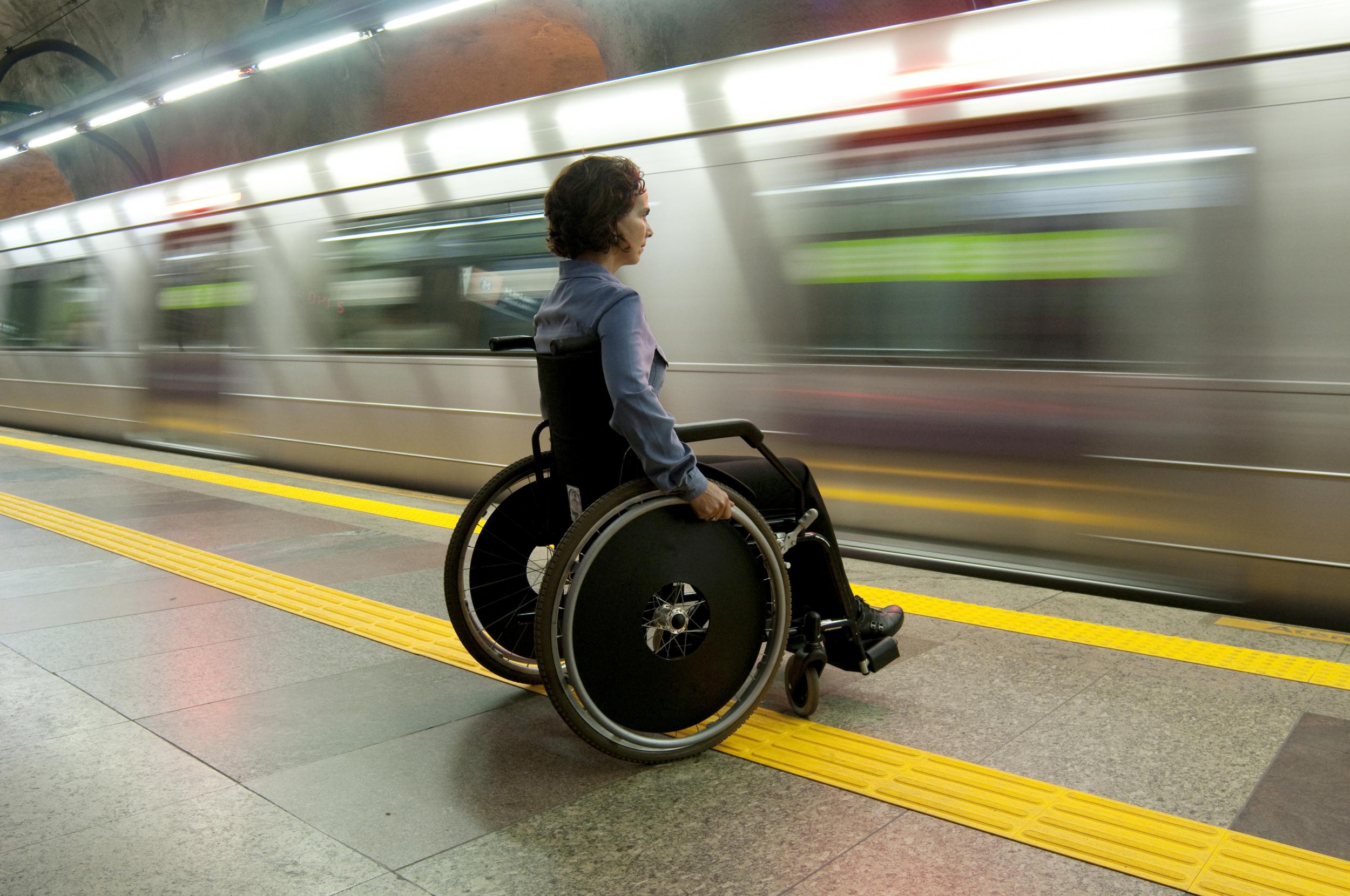Two thirds of disabled passengers experience problems travelling by train, finds government report
Almost half of travellers anticipate problems with future rail travel

Two thirds of disabled rail passengers experience problems travelling by train, according to new government research.
Looking at the experiences of disabled travellers all around the UK, the Department for Transport found that inaccessible toilets, ticket offices being closed and attitudes of other passengers all created barriers to travel.
The report, compiled in collaboration with Transport Focus, was based on a combination of 1,400 online survey responses, 150 face-to-face survey responses, 50 qualitative interviews, 12 expert interviews and 15 rail journeys conducted by passengers wearing a small camera to capture their experiences.
Of those surveyed, 23 per cent reported there were problems once onboard the train, with three in 10 passengers who experienced an issue citing a lack of toilets or the attitudes of others.
Disabled passengers reported being anxious and said that a “hierarchy” around priority seating meant those with less visible conditions were sometimes perceived to be less deserving.
First look inside the new Caledonian Sleeper train
Show all 6Awareness of special assistance at stations and on trains was also found to be fairly low, with just over a third of respondents saying they never pre-book assistance.
Almost half of disabled rail passengers reported that they anticipated problems with future rail travel, with those travelling for commuting purposes being the most likely to anticipate barriers.
The majority of disabled passengers also said they would ideally like to travel by rail more frequently than they do at the moment, suggesting more needs to be done to improve accessibility and increase travellers’ confidence in using the rail network.
The DfT said: “We are acutely aware of the difficulties faced by disabled passengers using our railways, and we are working hard to deliver the upgrades needed. Since this research was commissioned over two years ago our inclusive transport strategy has delivered step-free access at around 1,500 stations.”
James Taylor, head of policy, Campaigns and Public Affairs at disability equality charity Scope, said: “Today’s research provides further evidence that demonstrates the service disabled people get from our public transport system is patchy and inconsistent.
“Problems such as inaccessible vehicles, poor customer service, and lack of up-to-date information can make it very difficult for disabled people to get to work, socialise and live independently.
“Worryingly, this research has found half of disabled people anticipate experiencing a problem before it has happened when using the rail network.
“It is positive that Government is taking this issue seriously by putting funding into making the rail network more accessible for disabled people. However, further work is needed from Government, transport companies and passenger groups to make sure disabled people are able to have the same level of service as everyone else.”
The report follows the DfT announcement it will invest £20m in improving rail accessibility for disabled passengers.
Subscribe to Independent Premium to bookmark this article
Want to bookmark your favourite articles and stories to read or reference later? Start your Independent Premium subscription today.

Join our commenting forum
Join thought-provoking conversations, follow other Independent readers and see their replies